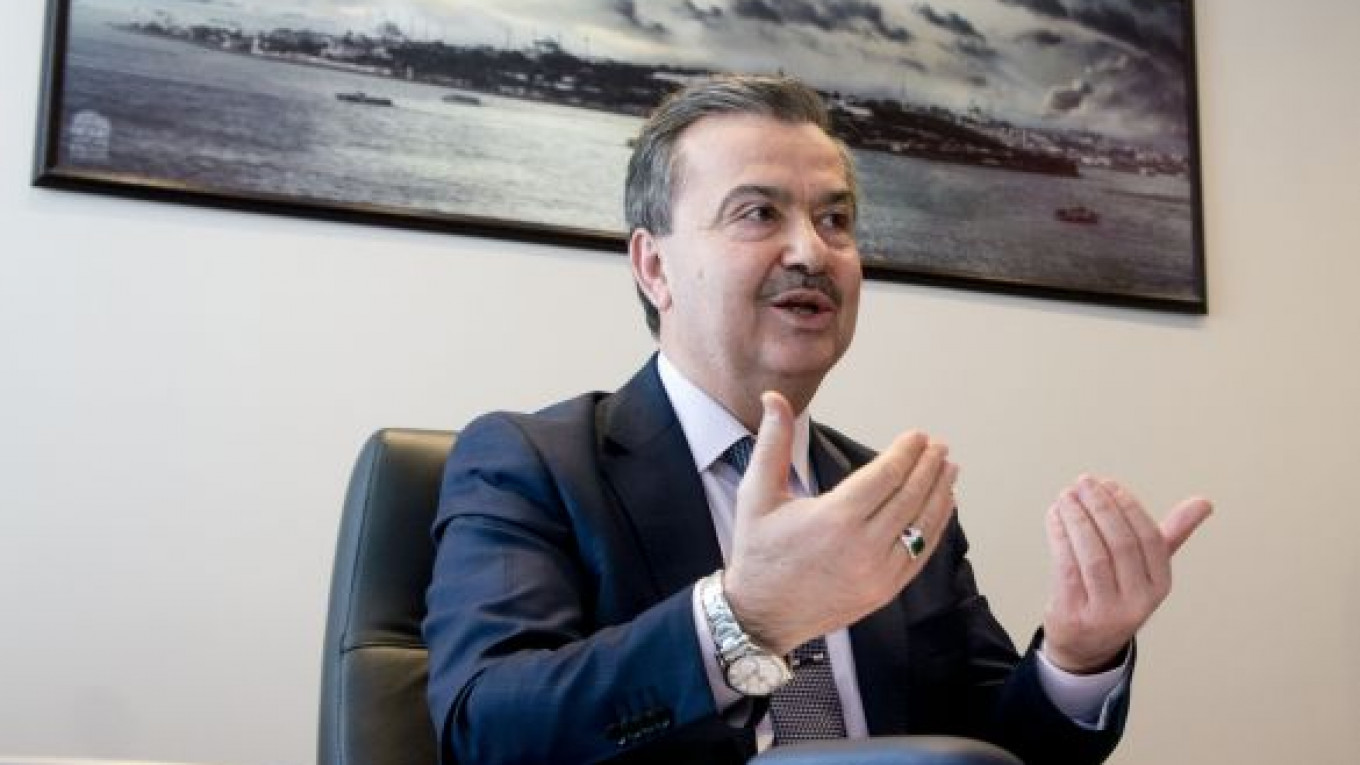Mefail Deribas runs a business that helps millions to escape to the sunny beaches of Russia’s most popular tourist destination: Turkey.
The general director of Turkish Airlines in Russia for eight years, Deribas offered insight into why he took the job.
Although educated in Sweden, he said in an interview that Russia beckoned him as a workplace because it was closer to Turkey and had a similar history.
“Turkey and Russia both were empires once,” Deribas said. “They have much in common, and that influenced their ties to become closer.”
In addition, before he came to Russia in 2005, a new political party led by Recep Tayyip Erdogan came to power in Turkey and reshaped the country’s foreign policy. Formerly aligned exclusively with the West, Turkey changed its views about relations with Russia.
Turkish Airlines flies to eight cities in Russia, ranging from Moscow to as far east as Novosibirsk in Siberia. Nearly 4 million Russians fly to Turkey for vacations annually.
Turkey in May unilaterally agreed to allow Russian tourists to spend 60 days in the country without a visa, double the previous period, in a move that could further boost the summertime inflow of vacationers.
Deribas also spoke about some of his executive practices. A Muslim, he said religion helps him in managing people.
“I adhere to the principle of not wishing for others what I wouldn’t wish for myself,” he said.
Compared with Turkish Airlines offices across the world, the Moscow office has the least complaints from staff and management, he added.
The Quran also gives him inspiration in life, he said. “In many respects, the Quran shows us how to build relations with people and behave in various situations,” he said.
Secondly, his inspiration comes from the endeavors by Turkey’s ruling elite to improve the country. Over the last 10 years, Turkey has made a big step forward: Its gross domestic product increased to $800 billion from $240 billion, Deribas said.
Speaking about investment opportunities, he said one should always keep in mind Russia’s resource richness. Russia holds some of the world’s largest oil and natural gas reserves, but accounts for only 2 percent of the world’s population, he said.
Also, after the Soviet collapse, many industries and plants were abandoned or are obsolete. “This is a reason to come, invest and achieve good results,” Deribas said.
In addition, before doing business in Russia, it’s necessary to learn its culture and customs, he added. “It’s only by building relations with the right people that you can accomplish things,” he said.
Russia is Turkey’s largest trading partner, supplying natural gas through an underwater Black Sea pipeline. Turkish construction and manufacturing companies have a visible presence in Russia.
Turkey’s national airline now flies 212 planes — passenger and cargo — to 219 destinations around the world. It reported an extraordinary surge in profit last year, hitting $632 million, up from $11 million the previous year.
Asked about cultural and practical affinities between Russians and Turks, Deribas pointed out that the Russian language has about 2,000 words that are borrowed from the Turkic language.
“Russians are closer to Turks than other Europeans,” he said.
Whenever he tells about business life in Russia to his countrymen back at home, Deribas stresses that bilateral relations have never been so good historically.
“Even visa requirements have been removed for tourists, which tells you about the level of the relations,” he said.
Contact the author at [email protected]
Related articles:
A Message from The Moscow Times:
Dear readers,
We are facing unprecedented challenges. Russia's Prosecutor General's Office has designated The Moscow Times as an "undesirable" organization, criminalizing our work and putting our staff at risk of prosecution. This follows our earlier unjust labeling as a "foreign agent."
These actions are direct attempts to silence independent journalism in Russia. The authorities claim our work "discredits the decisions of the Russian leadership." We see things differently: we strive to provide accurate, unbiased reporting on Russia.
We, the journalists of The Moscow Times, refuse to be silenced. But to continue our work, we need your help.
Your support, no matter how small, makes a world of difference. If you can, please support us monthly starting from just $2. It's quick to set up, and every contribution makes a significant impact.
By supporting The Moscow Times, you're defending open, independent journalism in the face of repression. Thank you for standing with us.
Remind me later.






